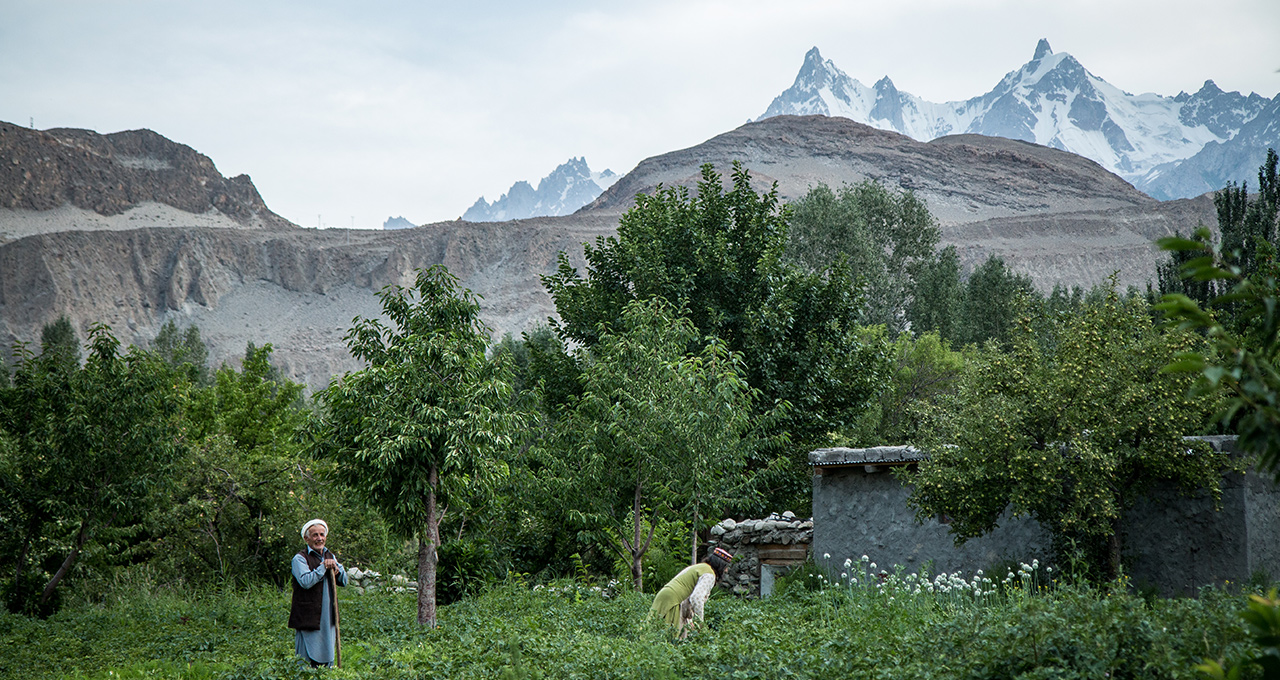 DAVID JAMES MOLDEN--
DAVID JAMES MOLDEN--
Dear friends and supporters of ICIMOD,
I am pleased to share with you our Annual Report 2019 (download here). With the COVID-19 pandemic still raging on in the HKH, it was particularly gratifying to go through the pages and recall when our work was in full swing, together with communities and partners in the region and in other parts of the world. I would like to share a few highlights of our work in 2019.
The report opens with my reflections along with Eklabya Sharma, Deputy Director General of ICIMOD, on our work and accomplishments over the last decade. I am proud of the progress we have made on several fronts and would like to go into more depth in the next newsletter.
We enjoy a special niche as a regional organization, and we fulfil a special role in enhancing regional collaboration around issues of mountain livelihoods and environment. We embarked on a set of regional programmes to facilitate this work across boundaries. There are many ways we do this – for example, working with yak-herding communities and governments to share knowledge and strengthen the voice of mountain people in policy discussions; working on common issues like shifting cultivation; and saving lives and property by collaborating on transboundary flood early warning. A melting Himalaya is a shared global concern, and the science on climate change brings together researchers from many countries.
Through 2019, we worked hard to share findings from the Hindu Kush Himalaya Assessment across all eight HKH countries. The Assessment brought the best science on the mountains together and continues to raise attention in the media about the HKH. With the HKH Call to Action – developed through consultations in each of our member countries – we want to proactively elevate this science to action. In October 2020, we are organizing a Ministerial Summit to recognize this call to action and promote joint activities on mountains.
ICIMOD is organized around seven strategic results, and the Annual Report details progress made on each of these goals. The goals are framed around innovations, use of our knowledge and information, promotion of gender equality and inclusive development, development of human and institutional capacity, policy influence, regional cooperation enhancement, and increased recognition of mountains on the global stage. For the first goal, the report highlights innovations such as those in homestays and tourism, organic agriculture, diversification in cardamom farming, and nature-based solutions.
As a knowledge organization, we pride ourselves in research, but ultimately we measure our success by use of knowledge. For example, we were inspired by an Afghan team setting up a benchmark glacier and by a resource book on multiscale river basin management focused on mountains and co-developed with stakeholders in Afghanistan. Our Regional Database System is ever-expanding as a data repository for us and our partners. We share exciting new knowledge on multidimensional poverty in the HKH, and we have made progress on adopting a common methodology for land cover assessment in HKH countries. We are pleased that in 2019 we produced 121 peer-reviewed science publications – our highest number – and that we had our highest number of women as first authors. This knowledge was used in the IPCC and IPBES processes, and many of our staff were involved in both. This is important because our region is generally considered data scarce. We had good engagement at the UN Climate Change Convention in 2019, and are ready for the UN CBD COP 15.
Through our gender action plan, we proactively ensure that issues of gender and inclusive development are reflected in our programmatic work. We are already seeing this approach in natural resource management, water resources management in Afghanistan, amplifying the voices of mountain people in the face of cryosphere change, and trainings like empowering women in geospatial information technology.
The ICIMOD office is normally buzzing with training activities, and indeed numerous participants (982) attended our trainings in 2019. Ultimately, we are aiming for institutional capacity building. For instance, our work in Afghanistan across agencies honed skills in water resources management and developed new relations that we can build on.
We always engage in policy discussion, and 2019 was no exception. We provided inputs on payments for ecosystem services for Nepal’s Forests Act, 2019; were involved in developing Mizoram’s REDD+ Action Plan – India’s first state REDD+ action plan; and supported governments to make sure that communities and environment are considered for sustainable hydropower development. We have been building our relations with journalists in each HKH country to better reach out to the public, and we are also expanding our engagement with the private sector, as we did with brick kiln owners and associations in Pakistan and other HKH countries to promote cleaner technology.
There are many more stories in the Annual Report for 2019. In spite of the challenging situation in 2020, we hope that we have more impactful stories to share with you next year as well.
David Molden
Director General
ICIMOD


